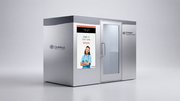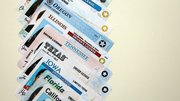Article
Smart cards, kiosks ease Army life
The Treasury Department, U.S. Army and NCR have deployed a smart card/kiosk program that simplifies payments for soldiers overseas. The troops can use the cards for on-base purchases, financial services and card-to-card fund transfers.
January 16, 2006
The Army and NCR are expanding financial services for troops overseas.
The Treasury Department implemented the Eagle Cash stored value card program using NCR Corp.'s Easypoint 42 kiosks, with smart card readers. According to an NCR statement, the program reduced the load of cash and coin required to pay deployed troops. Previously, some soldiers lined up at base finance offices to get cash. Eagle Cash eliminated some of the need for currency at on-base businesses. The U.S. Army and Treasury Department began deploying the system in Afghanistan, Bosnia, Honduras, Kosovo, Qatar and Saudi Arabia in August, 2005.
First Sgt. Josh Reed, who recently returned from Mosul, Iraq, said the current pay system is manageable, but handling cash overseas is a burden for the Army. Reed said the Army's Post Exchanges don't deal in pennies anymore, rounding change at the register up and down instead. Metal coins have been replaced by cardboard disks called "pogs" because coinage is heavy and hard to transport and physical currency must be secured.
"Previously, soldiers waited in long lines at the post finance office to cash checks or load funds to their EagleCash cards," said Graham Mackenzie, program manager for Stored Value Solutions at the Treasury Department's Financial Management Service. "The kiosks provide soldiers with an easily accessible way to recharge their cards. They can make balance inquiries and transfer funds to and from their accounts - all with the convenience of self-service."
Reed said properly managed units make sure their soldiers have the right financial tools when they leave home, but there can be hurdles during transport that make cash necessary, for example, when soldiers are laid over in foreign countries awaiting transport. Cash can also come in handy in special circumstances, like when Reed hired an impromptu interpreter on the street to gather intelligence.
"There's very few ATMs in the Iraq theater and the Afghanistan theater right now," Reed said. "The easiest means (to get cash) are by personal check. Each of my soldiers, when they deployed, I made sure they had a checkbook and a credit or debit card."
According to an NCR statement, 51 machines were delivered, and 32 were installed as of Jan. 4. 25 more were ordered at the end of 2005, and will be deployed in April, 2006. An NCR spokesperson did not disclose the cost of the machines. Remote support for the kiosks is provided by NCR during customer installation. To assist with ongoing basic maintenance, NCR Human Factors Engineering specialists developed task-aligned training modules that are integrated into the kiosks. This tool includes instructions accompanied by a visual demonstration on how to service the kiosk.
"Having fast and easy access to money is something we often take for granted, but for soldiers deployed on foreign land, it has always been a challenge," said Juan De Jesus, program manager for the U.S. Army Finance Command. "These kiosks provide a convenience that soldiers are accustomed to at home. It's one way to ease the stress of their every day activities."
 ChatGPT
ChatGPT Grok
Grok Perplexity
Perplexity Claude
Claude










